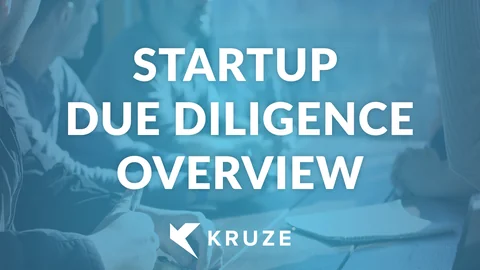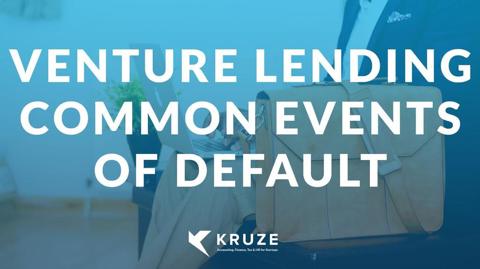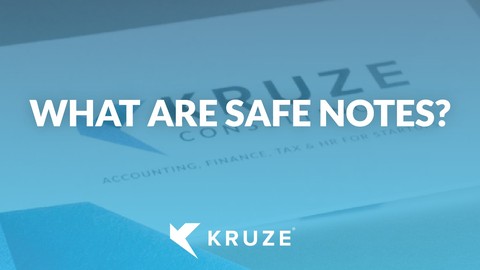
Locating an investor can be tough. Persuading them to invest in your startup presents an even greater challenge. VCs typically begin a formal due diligence process once they get truly excited about a startup, but they often start informal diligence – such as talking to market participants or common connections – right after meeting a founder that they like.
The best founders always assume they are being analyzed by VCs, and have basic due diligence materials readily available. Of course, this requires not only knowing what materials to have on hand, but a process to keep these up-to-date and easy to share at a moment’s notice.
What is due diligence?
Due diligence involves a thorough assessment of a prospective investment to validate all pertinent information, identify the key risks of a possible investment, and evaluate them against the possible upside of the company. The formal part of this typically includes reviewing financial records, contracts, and various legal documents. But other parts like understanding the market and competitive landscape, understanding the value clients are getting out of the product(s), and figuring out if the technology is solid, are just as important.
A venture capitalist’s primary objective during diligence is to support any assertions made by the startup and gain deeper insights into various aspects of the business, including the team, technology, market potential, and competitive environment. The best investors have a standardized process that they follow for most (if not all) possible investments; these processes help them categorize possible risks and downsides against other investment opportunities.
Since most VCs are time-constrained, they don’t formally begin this work until they are seriously interested in the business. However, simple reference calls into their network can happen at any time, so founders should be prepared for common connections – or major clients they name drop – to be contacted at any point.
Tip: If you know a VC is connected to your clients, it’s OK to ask the investor to not contact them about your startup until you give them permission. In fact, it’s not a bad idea to request that they hold off until you know they are serious about your company, since the best customer references are likely busy people who have limited time to talk about your startup.
What is a Venture Capital Due Diligence Checklist?
A venture capital due diligence checklist is a list of questions that an investor will share with a company that they are evaluating. The VC’s due diligence checklist contains a list of questions and materials that the VC will want to see in order to understand the company’s operations, financials, market, legal/tax compliance, etc.
The level of complexity in a due diligence checklist tends to increase the greater amount of funding that the company is raising or the later the “round” is (i.e. a Series D checklist is typically more exhaustive than a Series A checklist).
Why Do VCs Conduct Due Diligence?
Startup founders make certain claims about their businesses in their attempts to attract potential investors. In response, investors, like venture capital firms, undertake due diligence to authenticate these assertions and get a comprehensive understanding of the company prior to committing their capital. Due diligence lets VCs spot any warning signs or potential issues that could impact their investment decision, ranging from financial irregularities to legal problems.
Often, VCs enlist experts to thoroughly assess the startup and obtain answers to questions like:
- What are the potential problems or risks associated with this startup?
- Can these problems or risks be mitigated?
- What are the potential rewards of this investment?
- Is this the right moment to invest in this startup?
- Has the startup maintained honesty and transparency regarding its operations?
- Does the startup adhere to all legal and regulatory requirements?
- Does the startup own the intellectual property (IP) linked to its products and services?
- What does the competitive landscape look like?
When Do VCs Perform Due Diligence?
Many founders don’t realize it, but due diligence starts informally the first moment an venture capital firm engages with a startup. During this initial interaction, the VCs pose questions to establish a broad understanding of the company. And, as we’ve already mentioned, investors may contact clients and common connections very early on in the process. Many investors conduct a lot of diligence prior to offering a term sheet. This can be good for the founder, as it means that there is only a small chance that the deal falls through.
Tip: It’s a great idea to ask the investor how often they sign a term sheet and then don’t complete the investment. Most early stage investors complete close to 100% of the deals where they’ve signed a term sheet, as they’ve already conducted the market and founder diligence by that point, as well as talked to a few clients and figured out how the product and technology work. However, later-stage investors often don’t front-load the investigation of the company prior to the term sheet, so they are more likely to not consummate close to all of their signed term sheets with actual investments. Again, ask the investor before you sign a term sheet.
Formal accounting and legal due diligence usually kicks off once the founder and the VC investors agree on the term sheet, as this work is time-consuming, sometimes expensive, and, if the founder is running a tight ship, doesn’t usually cause an investment to not happen. Again, that’s assuming the founder is doing a good job running their finances and legal back office.
At this point, the VCs will provide the startup with a comprehensive venture capital due diligence request list, detailing a series of information requirements. The length of the due diligence process hinges on several factors, including the complexity of the company and its ecosystem, how efficiently the founder provides the necessary information, and the pace at which the VC investor reviews and analyzes the information.
How Long Does Venture Capital Due Diligence Take?
VC due diligence can take as little as a single meeting to months and months. The best companies that we work with tend to have ongoing conversations with potential venture capital investors well before they formally begin a fundraising process – and these companies typically can get through due diligence in two to four weeks. From a cold pitch, where there is no previously existing relationship, due diligence usually takes a bit longer, but hopefully less than six weeks.
How To Prepare For VC Due Diligence
- Stay organized. Startups should organize their due diligence documents in secure folders that are categorized by the areas outlined on our checklists. Since many of the typical due diligence items listed on the checklist are legal or accounting in nature, you should connect with your startup’s law firm and accounting firm to:
- make sure you have existing files like your articles of incorporation and tax returns stored in digital, sharable folders;
- establish process to regularly update your critical files like financial statements and
- get a point of contact who will assist you quickly should you need to begin diligence immediately.
- Be responsive. If you’re organized, it should be easy to respond to diligence requests in a timely manner. After all, you don’t want to miss out on a funding opportunity! Responsiveness also gives investors confidence in your startup. In addition, management should have a plan to respond to any issues that come up during due diligence. Appointing someone on the management team as a point person for diligence requests during the process is a good idea.
Of course, we suggest working with an experienced startup-focused accounting firm, like Kruze Consulting, well before your startup is in the due diligence phase of an important transaction.
We’d be happy to help you out. Just set up a time to talk with us.
Avoiding Common Due Diligence Mistakes
Being prepared for VC due diligence is the best way to avoid common mistakes – and it’s the same for M&A transactions as well. The list of questions that VCs come with is quite standardized, so there is no excuse for being unprepared! Read through our checklist to see what materials you are most likely to need in your data room, and be ready to share them at the drop of a hat.
Ideally, you’ll make the generation of the operating due diligence metrics part of your regular course of business – knowing how much it is costing you to acquire customers, keeping your primary client contracts in a single location, dropping your tax returns into a folder every year – these are best practices that the top startup executives do regularly.












